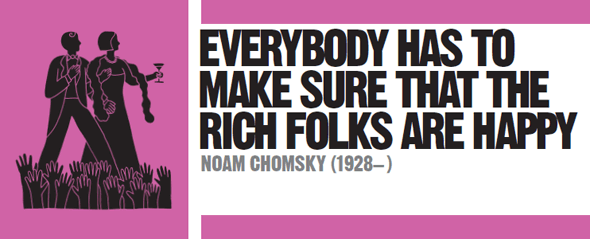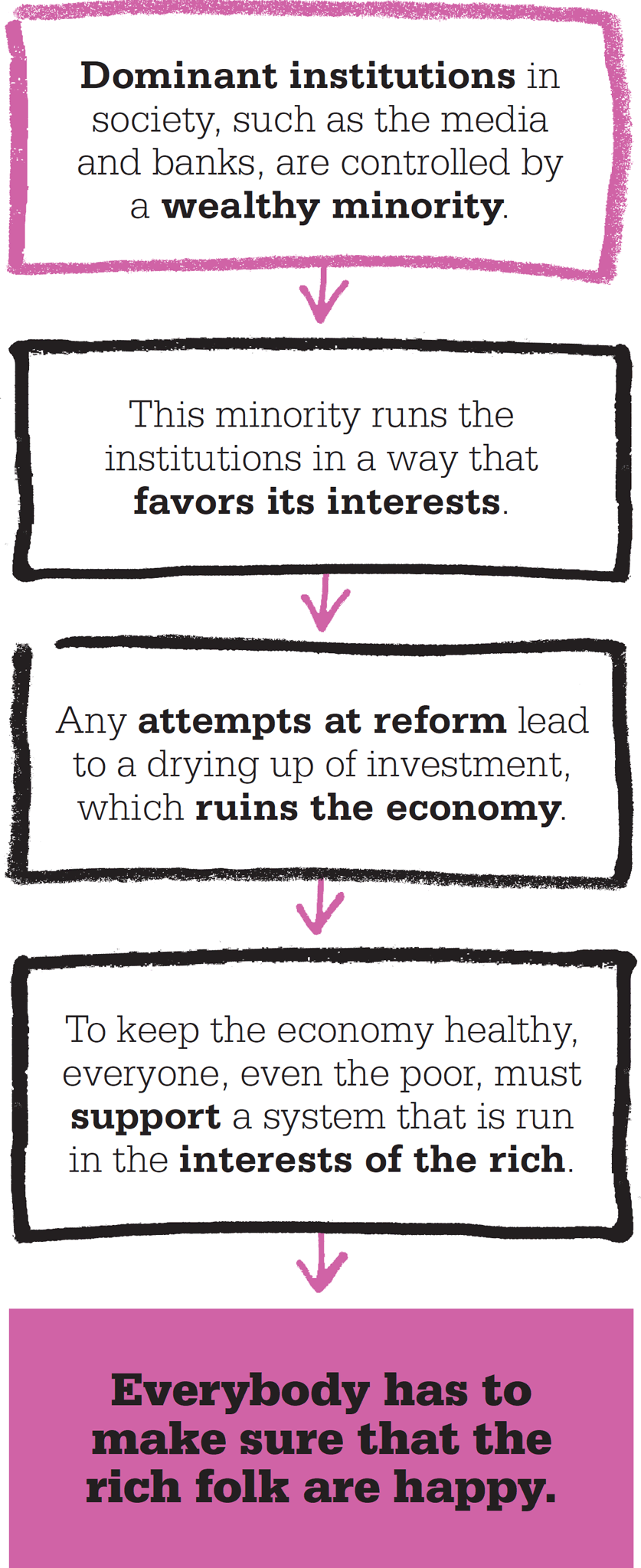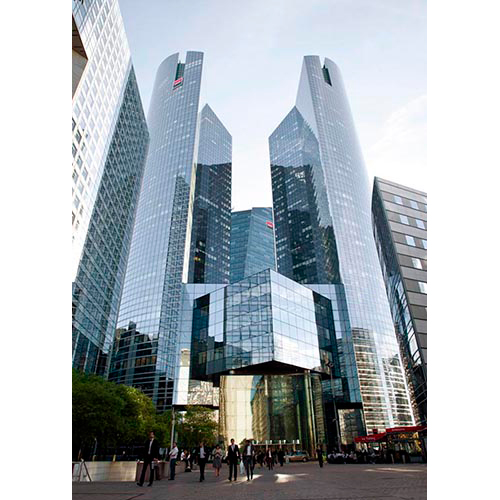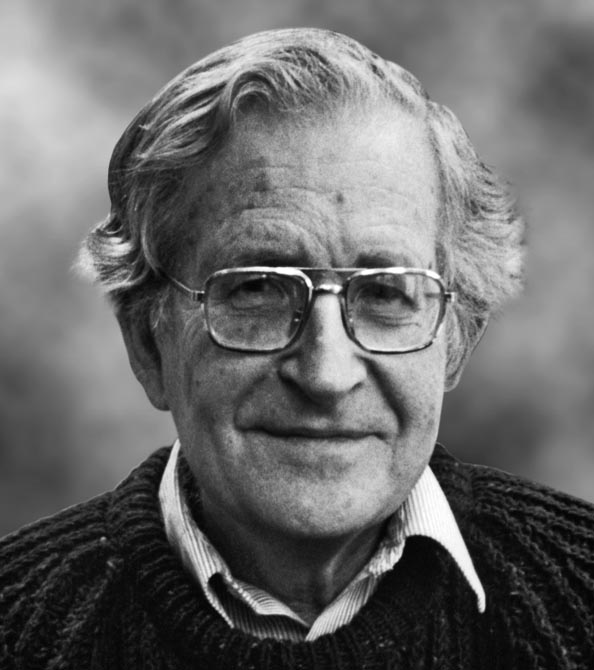
IN CONTEXT
Libertarian socialism
Power and control
1850s Karl Marx argues that one societal class holds complete political and economic power.
1920s German sociologist Max Weber claims that bureaucrats form elites that manage societies.
1956 In The Power Elite, US sociologist Charles W. Mills claims that important policies come from big business, the military, and a few politicians.
1985 Czech playwright Václav Havel publishes his essay “The Power of the Powerless.”
1986 British sociologist Michael Mann claims that societies are made up of overlapping power networks.
One question that continues to fascinate political thinkers and politicians is: where is power concentrated in society? Many different types of people and social institutions are involved in shaping human progress and organization, and over time a dense network of power relations has established itself across the globe. However, does this mean that power is diffused throughout society, or has it instead become concentrated in the hands of a few privileged individuals who make up an elite?
US linguist and political philosopher Noam Chomsky’s view is that in most countries a wealthy minority controls the key social and political institutions, such as the mass media and the financial system, ensuring that the functioning of modern society favors a powerful elite. In turn, this means that dissent and meaningful change are nearly impossible, because the dominant institutional structures in society—from newspapers to banks—focus on maintaining their positions to their mutual benefit. Not only are social elites advantaged by their wealth and position, but they are also at the pinnacle of a society that is structured to favor them still further.
"Power is increasingly concentrated in unaccountable institutions."
Noam Chomsky
Any attempt at widespread reform would, in Chomsky’s view, result in one of two outcomes: a military coup, which would restore power to the hands of private individuals; or (more likely) the drying up of investment capital, which would have serious consequences for the economy. The latter outcome ensures that all members of society, no matter how humble, have a stake in supporting the privileged position of the very wealthy. Everybody has to make sure that the rich folk are happy, to ensure the health of the economy.

Keeping profits up
This concentration of power is structural, rather than a conspiracy carried out by a small number of individuals. The economic interests of large corporations, the government, and investors ensure that public decisions are made by groups whose interdependence means that radical change is not possible. Instead, a mutually supporting network of institutions work to ensure the maintenance of a stable economic system, which is said to be beneficial to all. However, Chomsky notes that many of the “benefits” of this system are “good for profits, not for people, which means that it’s good for the economy in the technical sense.”
Chomsky also considers the wealthiest countries of the world to be elites that threaten the security and resources of smaller, less-developed nations. However, he points out that while the principles of imperial domination have changed little, the capacity to implement them has declined as power becomes more broadly distributed in a diversifying world.

Large banks such as France’s Société Générale display their wealth in their expensive head offices. According to Chomsky, the whole of society is run to keep such rich organizations happy.
NOAM CHOMSKY

Avram Noam Chomsky was born in Philadelphia. After graduate study at the University of Pennsylvania, and a period as a Junior Fellow at Harvard University, he began work at MIT, where he has remained for more than 50 years. During this time he has forged a career that has been notable both for its significant contribution in the field of linguistics, and a willingness to engage with questions of broad political significance. Chomsky published an article criticizing fascism at the age of 12, and has been a political activist ever since, concerning himself particularly with questions of power and the global influence of the US. Often controversial, his work has had a significant influence in a wide range of fields, and he has won many prestigious awards. He has authored over 100 books and has lectured widely around the world.
Key works
1978 Human Rights and American Foreign Policy
1988 Manufacturing Consent
1992 Deterring Democracy
See also: Plato • Karl Marx • Friedrich Hayek • Paulo Freire • Michel Foucault
